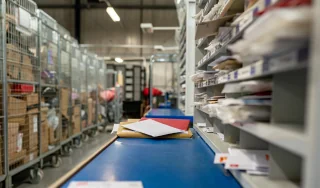According to recent reports released from Royal Mail, 2015 will be a year that sees online marketplaces continue to grow even more as an outlet for UK SMEs. They predict that 70% of businesses will see sales increase. In fact, their research also showed that 63% of UK SME online retailers were planning to increase the number of channels they trade through, with 25% of retailers planning to start using online marketplaces for the first time.
The benefits of trading online are numerous, and any business will acknowledge the advantages, but also the hard work that it takes, of getting a business website up and running so that customers can make purchases directly on a website. Think of the big ecommerce websites, like Amazon or Ebay, and you will quickly understand why they are so successful – they offer convenience, time saving purchases, and customers can get almost anything they need with just a few clicks. It takes a while to achieve something as big as this, but with some work, SMEs can take advantage of the online marketplace revolution!
Advantages
The advantages of trading online include:
- Further reach to more customers: with geographic location being no hindrance at all, SMEs can trade online to a global marketplace.
- Easier to gain data on customers: you can use your website as a marketing tool, so that you are able to establish exactly where your customers came from, how they found your site and what pages they looked at. With this information, SMEs are able to pinpoint what is working and what is not, continuing to improve customer experience and grow.
- Ability to shut up (physical) shop: If rent prices are too high, businesses are able to leave their physical shop locations and trade online instead. With very few overheads, it makes perfect sense to any SME who wants to continue to trade easily.
Difficulties
- Expert help: It takes more than just a quick website to get trading online successfully. You need something that shows up in search engine results, works well, has good navigation and a smooth checkout process. This all takes time and expert help, so SMEs mustn’t underestimate the challenges of getting started.
- Maintenance: SMEs must maintain websites regularly to avoid SPAM, broken links and so on. This is an ongoing process, and companies cannot become complacent. A website that is successful is one that continues to develop and adapt to industry changes, search engine changes and Google updates, such as Penguin or Panda.
- Customer satisfaction: Customers can get increasingly frustrated with websites going down, or bad customer service received through online marketplaces. Customers often want a telephone number they can call if something goes wrong. Providing a smooth process is key. According to Royal Mail, 27% of SMEs will be simplifying the returns process in 2015 to increase customer satisfaction. Nick Landon, Managing Director of Royal Mail Parcels, commented, “Royal Mail’s annual tracker study of UK SME online retailers shows that there is strong optimism for growth despite increasing competition…. Simplifying the returns process for customers is also a key area of focus for many online retailers in the year ahead.”

